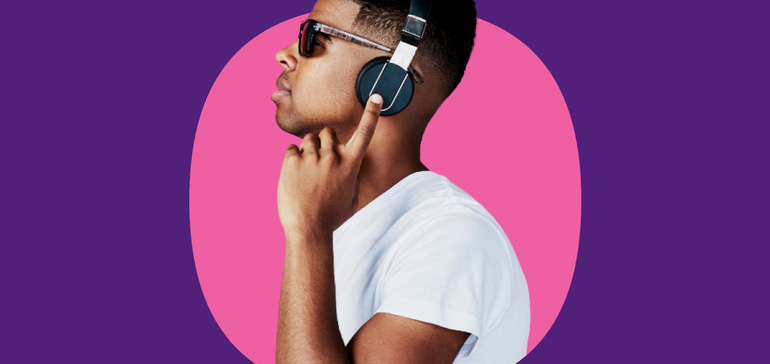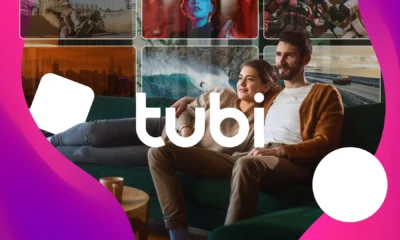SOCIAL
The Hottest Advertising Trends This Summer

With an ear on the ground, we’re watching the advertising industry navigate the uncertainty of a cookieless future, keep up with the non-existent metaverse, and jump on growing media channels.
Here are some of the hottest conversations happening in the advertising industry this summer.
1. The metaverse: some consumers are ready, others are scared
For agencies and in-house marketers, campaigns won’t be mega metaverse-centric for some time. What we do know, thanks to our trusty data, is what consumers think about the metaverse right now.
Our March 2022 Zeitgeist data shows that 33% of people are very/extremely interested in participating in the metaverse.
On the flip side, only 15% of consumers are not at all interested in participating in the metaverse.
When it comes to what people want to do in it, 51% say watch TV/films, 44% say play games, 43% say browse products, and 41% say watch live events (like concerts).
And what’s holding back those who aren’t really vibing with the metaverse? Well, it’s a mix of things. 40% attribute it to a lack of interest, 39% say they prefer to stay in the real world, and 23% have concerns around personal data/identity theft.
We also know that consumers are twice as likely to say they’re curious online compared to in real life, which means when the time comes for brands, metaverse environments ought to cater to this.
2. Audio ads are on the rise – like, big time
Louder for the people in the back: audio ads are on the rise – like, big time. From Q1 2021 to Q1 2022, the fastest-growing sources of brand discovery were:
- Ads on podcasts (up 14%)
- Ads seen at the cinema (up 12%)
- Ads on music-streaming services (up 11%)
- Ads heard on the radio (up 9%)
All but one of those are audio – which says a lot about the media channel’s growing strength.
The beauty of audio is that it can be enjoyed alongside other media – and quite often, that’s exactly what consumers do. For brands and advertisers alike, there’s a big opportunity here.
3. In-game advertising is a fortress, but there’s a way in
The world of gaming is a goldmine for brands. Around the world, console gamers are 22% more likely to buy brands they’ve seen advertised compared to the average consumer. And unlike other media forms, you’ve got to be paying full attention, so in the attention-recession, consumer engagement is high.
But as many advertisers will know, game developers are incredibly precious about what intrinsic ads sit inside their creations. And rightly so. Gaming is an immersive experience.
Speaking at Advertising Week Europe, Jonathon Troughton, CEO of Frameplay, an intrinsic video game advertising company, tells us how to make it work.
He recommends using distinct imagery, avoiding busy designs, and keeping it simple. Plus, remember that gamers are moving around in the environment, so limiting text is key, as is being playful and authentic to the experience.
4. The cookieless future is wildly unclear. And execs are worried.
Confused about the cookieless future? Well, ‘don’t wait for Google’ is the mantra circling the internet right now, because advertisers around the world are hoping the tech giant will tell us what to do after they disappear. In fact, 71% of agency and brand executives are worried about the cookieless future and don’t know what’s next.
But consumers seem less worried. In fact, they’re craving privacy. Our data shows that 42% of consumers regularly clear their browsing history, 25% regularly use private browsing, and 22% regularly decline cookies. Meanwhile, 20% regularly use a VPN and 32% worry about how companies use their personal data online.
So, what will it mean for brands? Across the board, advertising experts (who aren’t waiting for Google) are already coming up with new and innovative ways to bypass the cookie. For example, buying targeted ads has often relied heavily on third-party cookies, and so now, the future relies on one thing: getting more data. “And the only way to do that is by integrating with third-party syndicated data”, as we discuss in detail.
SOCIAL
Snapchat Explores New Messaging Retention Feature: A Game-Changer or Risky Move?

In a recent announcement, Snapchat revealed a groundbreaking update that challenges its traditional design ethos. The platform is experimenting with an option that allows users to defy the 24-hour auto-delete rule, a feature synonymous with Snapchat’s ephemeral messaging model.
The proposed change aims to introduce a “Never delete” option in messaging retention settings, aligning Snapchat more closely with conventional messaging apps. While this move may blur Snapchat’s distinctive selling point, Snap appears convinced of its necessity.
According to Snap, the decision stems from user feedback and a commitment to innovation based on user needs. The company aims to provide greater flexibility and control over conversations, catering to the preferences of its community.
Currently undergoing trials in select markets, the new feature empowers users to adjust retention settings on a conversation-by-conversation basis. Flexibility remains paramount, with participants able to modify settings within chats and receive in-chat notifications to ensure transparency.
Snapchat underscores that the default auto-delete feature will persist, reinforcing its design philosophy centered on ephemerality. However, with the app gaining traction as a primary messaging platform, the option offers users a means to preserve longer chat histories.
The update marks a pivotal moment for Snapchat, renowned for its disappearing message premise, especially popular among younger demographics. Retaining this focus has been pivotal to Snapchat’s identity, but the shift suggests a broader strategy aimed at diversifying its user base.
This strategy may appeal particularly to older demographics, potentially extending Snapchat’s relevance as users age. By emulating features of conventional messaging platforms, Snapchat seeks to enhance its appeal and broaden its reach.
Yet, the introduction of message retention poses questions about Snapchat’s uniqueness. While addressing user demands, the risk of diluting Snapchat’s distinctiveness looms large.
As Snapchat ventures into uncharted territory, the outcome of this experiment remains uncertain. Will message retention propel Snapchat to new heights, or will it compromise the platform’s uniqueness?
Only time will tell.
SOCIAL
Catering to specific audience boosts your business, says accountant turned coach

While it is tempting to try to appeal to a broad audience, the founder of alcohol-free coaching service Just the Tonic, Sandra Parker, believes the best thing you can do for your business is focus on your niche. Here’s how she did just that.
When running a business, reaching out to as many clients as possible can be tempting. But it also risks making your marketing “too generic,” warns Sandra Parker, the founder of Just The Tonic Coaching.
“From the very start of my business, I knew exactly who I could help and who I couldn’t,” Parker told My Biggest Lessons.
Parker struggled with alcohol dependence as a young professional. Today, her business targets high-achieving individuals who face challenges similar to those she had early in her career.
“I understand their frustrations, I understand their fears, and I understand their coping mechanisms and the stories they’re telling themselves,” Parker said. “Because of that, I’m able to market very effectively, to speak in a language that they understand, and am able to reach them.”Â
“I believe that it’s really important that you know exactly who your customer or your client is, and you target them, and you resist the temptation to make your marketing too generic to try and reach everyone,” she explained.
“If you speak specifically to your target clients, you will reach them, and I believe that’s the way that you’re going to be more successful.
Watch the video for more of Sandra Parker’s biggest lessons.
SOCIAL
Instagram Tests Live-Stream Games to Enhance Engagement

Instagram’s testing out some new options to help spice up your live-streams in the app, with some live broadcasters now able to select a game that they can play with viewers in-stream.
As you can see in these example screens, posted by Ahmed Ghanem, some creators now have the option to play either “This or That”, a question and answer prompt that you can share with your viewers, or “Trivia”, to generate more engagement within your IG live-streams.
That could be a simple way to spark more conversation and interaction, which could then lead into further engagement opportunities from your live audience.
Meta’s been exploring more ways to make live-streaming a bigger consideration for IG creators, with a view to live-streams potentially catching on with more users.
That includes the gradual expansion of its “Stars” live-stream donation program, giving more creators in more regions a means to accept donations from live-stream viewers, while back in December, Instagram also added some new options to make it easier to go live using third-party tools via desktop PCs.
Live streaming has been a major shift in China, where shopping live-streams, in particular, have led to massive opportunities for streaming platforms. They haven’t caught on in the same way in Western regions, but as TikTok and YouTube look to push live-stream adoption, there is still a chance that they will become a much bigger element in future.
Which is why IG is also trying to stay in touch, and add more ways for its creators to engage via streams. Live-stream games is another element within this, which could make this a better community-building, and potentially sales-driving option.
We’ve asked Instagram for more information on this test, and we’ll update this post if/when we hear back.
-

 PPC5 days ago
PPC5 days ago19 Best SEO Tools in 2024 (For Every Use Case)
-
SEARCHENGINES7 days ago
Daily Search Forum Recap: April 17, 2024
-
SEARCHENGINES6 days ago
Daily Search Forum Recap: April 18, 2024
-
SEARCHENGINES5 days ago
Daily Search Forum Recap: April 19, 2024
-

 MARKETING6 days ago
MARKETING6 days agoEcommerce evolution: Blurring the lines between B2B and B2C
-

 SEO6 days ago
SEO6 days ago2024 WordPress Vulnerability Report Shows Errors Sites Keep Making
-

 WORDPRESS5 days ago
WORDPRESS5 days agoHow to Make $5000 of Passive Income Every Month in WordPress
-

 WORDPRESS6 days ago
WORDPRESS6 days ago10 Amazing WordPress Design Resouces – WordPress.com News















You must be logged in to post a comment Login